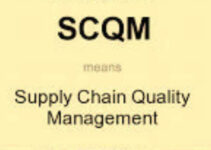Supply chain management is the method of converting raw suppliers into the final product, storing, warehousing, and distributing the finished goods to the end consumers. ASCM (Association for Supply Chain Management) offers various types of certifications under the brand of APICS (American Production and Inventory Control Society). Today, we’ll discuss APICS supply chain certifications; its various types, requirements, learned skills, worth of certifications, and target jobs.
According to a study by ASCM in 2021, SCM professionals having APICS certifications would earn 27% more salary (average of $90,000) than those without certifications. APICS certifications show that the person has the SCM skills and expertise and is verified through a 3rd party certifying organization. You can earn the APICS certifications from the following sources;
- Private organizations
- Online institutes
- Traditional colleges
- Vocational schools
What are APICS Supply Chain Certifications?
APICS is a non-profit educational organization that has partner companies and institutes in various countries across the globe. The objective of APICS certifications is to certify and verify the knowledge and expertise of SC and operational management. The certification program allows its customers, affiliates, and community members to grow in the international marketplace.
Some of the main skills and expertise that you would learn through the APICS certification program are as follows;
- Demand forecasting, managing, and planning the supply
- Organizing distribution and inventory
- Amplifying end-to-end functional knowledge of SCM
- Comprehending SCM changing trends, relationships, and networks
- Decreasing SC risks
Some of the main educational and other requirements for APICS certifications are as follows;
- Graduation or bachelor’s degree
- 3 years of relevant professional work experience
- Active certification of CFPIM, CIRM, CPSM, CSM, CPM, SCOR-P, and CPIM
Types of APICS SC Certifications
Some of the main types of APICS supply chain certifications are as follows;
SC Operations Reference Professional
It is for those candidates who have successfully achieved expertise in the SCOR model and earned an endorsement in SCOR-P. Speaking of SCOR, it is a very popular industry model that focuses on amplifying and streamlining SC performance. It combines measurements, process re-engineering, and benchmarking into its framework.
Certified in Distribution, Transportation, & Logistics
It is a form of certification that offers instructions and guidelines for streamlining logistics, transportation, and distribution. The certified individual would have the capability to perform the following tasks;
- Recognizing and decreasing risk factors
- Analyzing and evaluating the performance of the warehouse
- Amplifying inventory management
Certified SC Professionals
CSCP certification defines SCM in a much wider perspective and it comprises delivery, production, manufacturing, and sourcing. It offers students and learners an opportunity to learn the best strategies in this area. However, it differentiates them as industry experts with the highest level of knowledge and skills.
Certified in Production and Inventory Management
CPIM is a form of ideal certification for those individuals who want to pursue a career in the field of inventory management. It comprises managing various critical activities like scheduling, production planning, and plant operation management. In order to achieve CPIM certifications, candidates should pass two exams within the duration and period of 3 years.
Worth of APICS SC Certifications
APICS is a great certification program for those who want to pursue a career in the SCM field. The program offers you an opportunity to be aware of the rapidly changing environment and it amplifies your professional skills and expertise. However, it allows you to enter into various areas and fields of SCM and amplify your earning growth and potential.
The certification program helps candidates to polish their resume-developing skills so that they can differentiate themselves from the crowd of competitors. Often, employers are looking for the specific skill and expertise in your certification to perform their job. The global SCM industry has become significantly complicated, and the demand for skilled professionals is increasing; that’s why it is important to stay ahead of the competition.
According to an estimate by BLS (Bureau of Logistics and Statistics), the employment opportunities for specialized logisticians increased by 30% during the period of 2020-2030. It means approximately 25000 new jobs opening with a growth of 8% in various occupations.
Jobs Based on APICS Certifications
Some of the main jobs based on the APICS SC certifications that you can receive are as follows;
Distribution Managers
The distribution managers make sure how, where, and when you would deliver goods to the customers. It requires them to collaborate with warehousing supervisors, forecasting, and inventory management. However, the average salary of distribution managers is approximately 69,140 dollars.
Logisticians
The logisticians monitor SC operations and the movement of goods and products. Their role comprises activities like inventory tracking, order fulfillment, and warehousing. However, this job is to satisfy the needs of customers and deliver the right goods to the customers at the right time. Their average salary is 77,030 dollars.
Supply Chain Managers
The SC managers manage various areas like procurement, production, storage, warehousing, and delivery to the end consumers. They have got the obligation of managing various stages of production, and cost, and improving overall SC performance. Their average salary is 84,340 dollars.
Conclusion: APICS Supply Chain Certifications
After an in-depth study of APICS supply chain certifications; we have realized that certification programs are highly significant for professional growth in skills and expertise. If you are learning about the APICS SC certification programs, then you should keep in mind the abovementioned elements, jobs, types, and requirements.
Ahsan is an accomplished researcher and has a deep insight in worldly life affairs. He goes Live 3 days a week on various social media platforms. Other than research writing, he’s a very interesting person.


